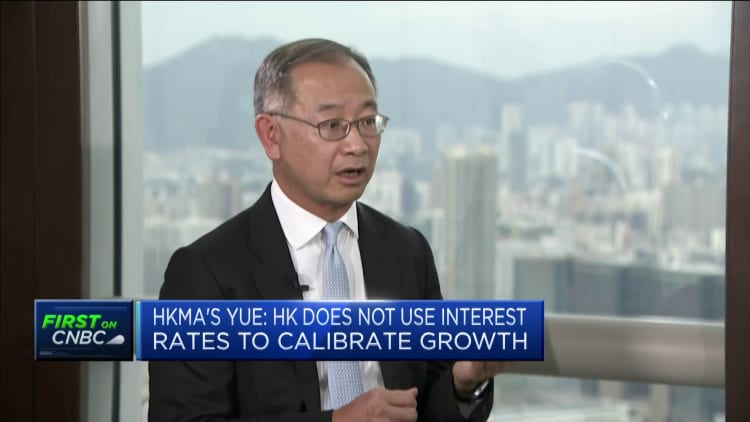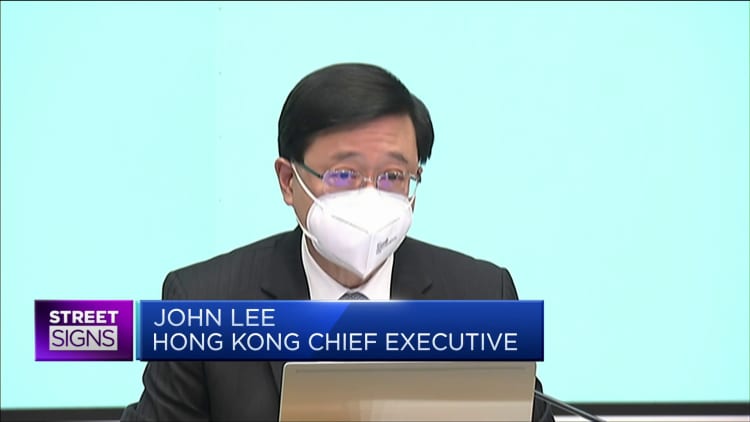
Hong Kong Monetary Authority's chief executive has defended Hong Kong's currency peg, saying it helped see the city through some of its toughest economic challenges.
In an interview with CNBC on Tuesday, Eddie Yue who leads Hong Kong's de facto central bank, said maintaining a stable exchange rate through the calibration of interest rates continues to be paramount to Hong Kong.
The currency peg "is actually doing Hong Kong great in terms of providing the needed exchange rate stability, especially through the cycles and during periods of uncertainty," Yue said.
"Hong Kong is a very small open economy with an externally oriented nature. So having a stable exchange rate is very important for us. But of course [with] any monetary policy, there will be trade off."
The Hong Kong dollar has been pegged to the U.S. dollar since 1983, and trades within a narrow range of 7.75 to 7.85 Hong Kong dollars against the greenback. The HKMA intervenes when the Hong Kong dollar wanders outside the accepted range.
Hong Kong economy
It would be up to the government to stimulate economic growth while the HKMA focuses its monetary policies on steadying the Hong Kong dollar against the greenback.
"And the trade off for Hong Kong is that we will not use interest rates to calibrate economic growth and that will have to fall mostly on the other policies of the government, including fiscal policy, for example," he added.
The U.S. Federal Reserve's aggressive interest rate hikes this year have forced up the dollar against Hong Kong's local currency, prompting a capital flight out of Hong Kong.
The HKMA has since raised interest rates five times this year and earlier this year, bought Hong Kong dollars to stabilize the currency.

Despite rising interest rates, Yue said the economy was on track as the government implemented ways to drive demand through consumption vouchers, and financial support for small and medium enterprises.
Hong Kong's eventual opening would draw in tourists and more spending, Yue said, but he warned this would come at a time when there would be fresh headwinds from a softening global economy.
Impact on housing market
Yue said he's confident the increase in interest rates won't hurt borrowers, particularly those with mortgages. The default ratio was also low at 0.05% and loan to deposit ratios are on average only 50%, he said.
"So even if there should [sic] be any correction in the property price, or if there should be an increase in interest rates … I think the impact on mortgages will be quite manageable," he said.
The Covid-19 pandemic, the departure of talent and now higher interest rates are putting downward pressures on house prices.
Investment bank Goldman Sachs said earlier this month that Hong Kong's home prices would decline another 30% from last year's levels, as interest rates continue to rise.

